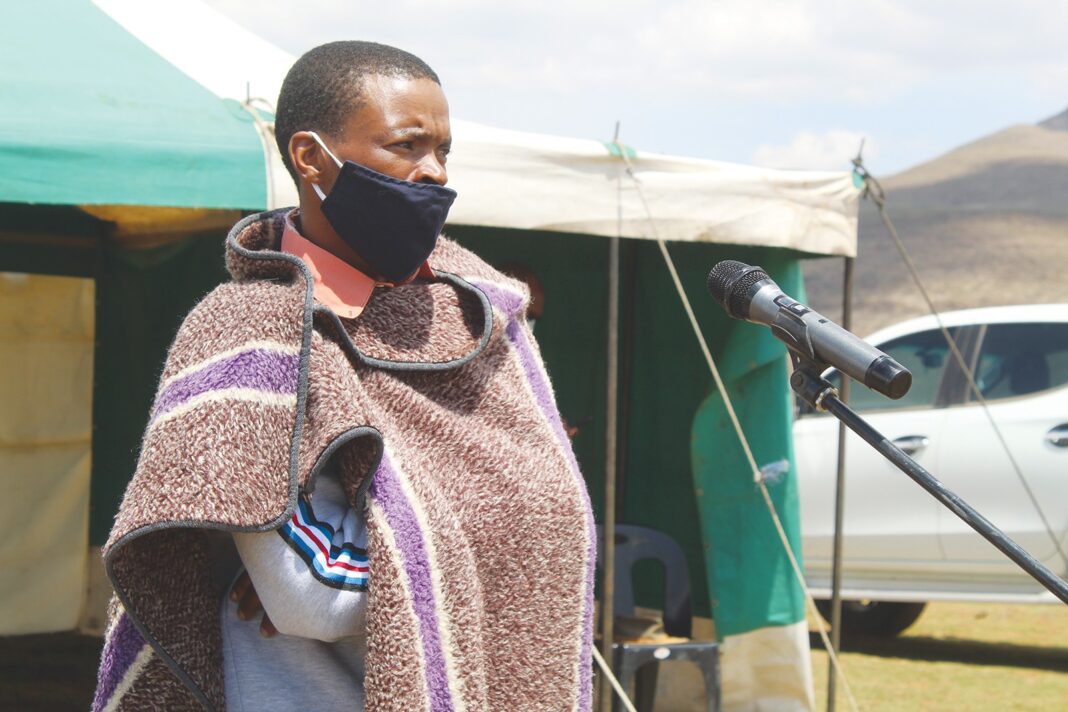By Likeleli Monyamane
A few months ago, I had the opportunity to facilitate a panel discussion to commemorate the UNFPA’s State of the World Report launch. The report is titled, “My body is my own: Claiming the right to autonomy and self-determination.” The report highlighted the negative impact of a lack of bodily autonomy on women and the societies in which they live. In the report, the UNFPA defined Bodily Autonomy as women having “the power and agency to make choices, without fear of violence or having someone else decide for (them).”
As I moderated the discussions, I couldn’t help but relate the topic to an area I am passionate about, women’s economic empowerment. In the past, I have expressed my passion by training women in financial literacy. In recent years I have also found opportunities to participate in the development of women entrepreneurs. Therefore, the topic of women’s entrepreneurship is now very close to my heart.
The empowerment of women economically is described by UN Women as the ability of women to gain market access, to have agency to participate meaningfully in economic decision-making from their homes to international institutions, as well as to “control their time, lives and bodies.” Before reading up on bodily autonomy, I was biased to financial / economic emancipation as the first and most important step to any kind of empowerment of women. However, as I facilitated the session, I realized that the social issues that exist can serve as significant barriers that hinder any progress made to empower women by women entrepreneurship initiatives. Therefore, it occurred to me, that all these issues go hand-in-hand.
Why women entrepreneurs matter in the first place
Based on the conversations I’ve had with various people in Lesotho, I know that some are still skeptical of the need for gender equality and therefore still need convincing that women empowerment matters. More especially, some may even wonder why women entrepreneurship is an area that needs to be considered separately from the general topic of entrepreneurship. The following are a few reasons why women entrepreneurship matters in the first place:
There are more women entrepreneurs than men in Africa
It is reported that Africa leads the world in women entrepreneurship, with women making up 58% of Africa’s self-employed population. This means that women depend more on entrepreneurial ventures to make a living and to support their families than men. Which means efforts to understand the mechanics of women entrepreneurship and to enhance women’s success in their ventures will have a greater benefit.
Women entrepreneurs hold the potential for the economic transformation of Africa
It is reported that women business owners participating in the informal sector business owners in Africa’s informal sector reinvest up to 90% of their income in education, health, and nutrition for their families while men only reinvest 40%. This indicates that empowering women business owners has the potential to directly impact education, health and food security positively, and that if women’s income increases then the impact will be significant for our economy.
Women are participating in sectors that are considered key sectors in the National Strategic Development Plan II.
The four sectors identified as key for the development of Lesotho are Agriculture, Tourism, Manufacturing and Technology. In Agriculture, women are reported to contribute 60% – 80% to food production, to account for 75% of the agricultural labour (AfDB, n.d). Similarly, women are well-represented in the tourism sector in Africa, with women constituting 69% of labour participation in the sector (UNWTO, 2020). Furthermore, while African women are generally underrepresented in the manufacturing sector, with only 32% of them forming part of the labour force in the sector, Basotho women form 82% of the labour force in the sector (Tralac, 2017). Just from the above data, any empowerment of women will have a major impact on the at least three of the key sectors geared to transform Lesotho’s economy.
The above three reasons are but only a few reasons why women entrepreneurs matter and why this topic requires more exploration within the context of Lesotho. Therefore, this means that any social issues that threaten the ability of policymakers, government entities and other stakeholders in Lesotho’s entrepreneurship ecosystem to advance women’s economic empowerment through entrepreneurship should be highlighted and addressed accordingly.
Other social issues that affect women entrepreneurship
Bodily autonomy is one social issues, however, there are many other issues that require our interrogation and attention. Issues that may traditionally be seen just as social issues but which have great economic impact and which hinder efforts to empower women through entrepreneurs.
Some of these issues are:
- Gender-Based Violence
- Domestic responsibilities that disproportionately affect women
- Gender inequality which affects women’s ability to participate in certain sectors, to access funding and that exposes them to discrimination in the business environment.
The purpose of this column is to elevate the conversation on women’s economic empowerment, to spark debate on gender equality in entrepreneurship and to explore solutions to how women can be adequately supported to achieve entrepreneurial growth and success.
About the author:
Likeleli Monyamane is the founder of Inspire Innovation Business Consultants, a professional services firm dedicated to advancing the development of Lesotho through helping clients solve complex problems. She is passionate about women empowerment, entrepreneurship development and servant leadership. She is dedicated to using her skills and talents to be a problem-solver and a change agent in her society.









